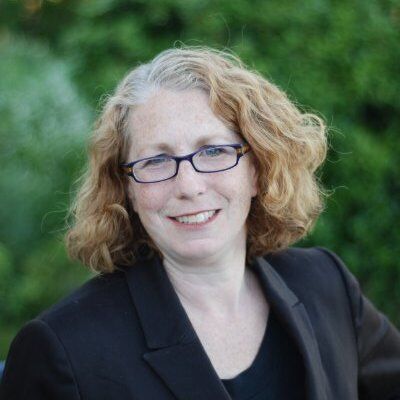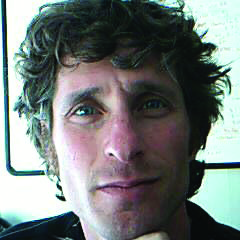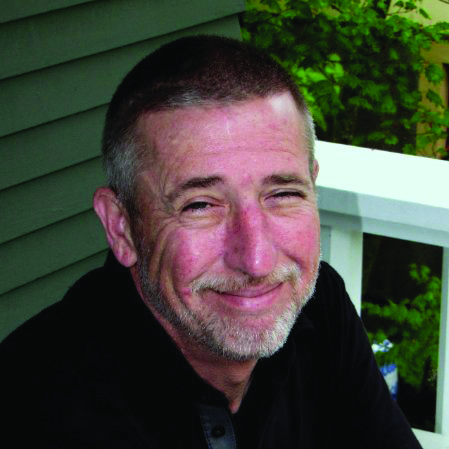Self-Help Credit Union was founded in 1980 as a not-for-profit community development lender, real estate developer and credit union that serves communities that are traditionally underserved by conventional markets – making its recent green lending initiatives a natural fit.
Within 15 years of its founding, the $715 million, Durham, N.C.-based credit union began an aggressive, multi-pronged strategy designed to foster sustainability on a number of fronts. Its first step was to introduce internal processes designed to encourage sustainability and energy savings in its own facilities and to track energy usage.
Its second initiative was to introduce multiple direct loan products designed to provide funding for sustainable projects. In the mid- to late 1990s, the credit union began offering these loans primarily to recycling businesses, but soon expanded the program to include loans to other types of green businesses, buildings and nonprofits.
The program has been paying off. To date, the credit union has made $298 million in green loans, which includes $138 million for energy efficient buildings and homes; $127 million for renewable energy projects, primarily solar; and $15 million for recycling businesses.
 Continuing to move forward, the credit union created an Environmental Stewardship Committee in 2005, and then hired Melissa Malkin-Weber in 2011 as its first-ever sustainability director.
Continuing to move forward, the credit union created an Environmental Stewardship Committee in 2005, and then hired Melissa Malkin-Weber in 2011 as its first-ever sustainability director.
One of the credit union's most aggressive and successful initiatives has been working with the U.S. Department of Agriculture and its Rural Energy for America Program, which provides renewable energy system and energy efficiency improvement loans and grants. Largely as a result of Self-Help's active solar farm lending program, the USDA's state office in Raleigh issued the agency's highest number of renewable energy loan guarantees nationwide. Malkin-Weber noted Self-Help is the largest lender in the country for the USDA's Rural Energy for America Program.
Rebecca Rogers, assistant general counsel and renewable energy loan officer for the credit union, said she is constantly seeking opportunities to provide financing for solar farms in rural areas across the state.
“We have been instrumental in helping a number of local solar developers grow their businesses,” she said. “The state has also had a huge increase in solar installations due largely to some very forward-thinking policies and practices in the state.”
While the majority of Self-Help's renewable energy project loans have been for solar projects (which are considered front and center in the state), it continues to push into other types of renewable projects. “For several years, for example, we have been involved in one-off projects that involve biomass, combined heat and power, wind and hydro,” Rogers said.
The credit union has also continued to expand its direct loan initiatives.
“We have a loan product for homeowners who want to install solar,” Malkin-Weber said. “We have also partnered with non-profit programs in six counties in the state that are advancing a group buying models for solar. This year, we are really refining this product and talking to installers about it.”
In addition, the credit union has established a partnership with Roanoke Electric Cooperative, a local utility company that pioneered on-bill repayment for energy loans in the state.
“We are partnering with them to provide loans to customers that they can't serve through their own program,” Malkin-Weber said.
 While Self-Help has been active in direct loans for renewable projects over the past 20-plus years, it has also become involved in the indirect side. One of its first forays into this market involved partnering with RSF Social Finance.
While Self-Help has been active in direct loans for renewable projects over the past 20-plus years, it has also become involved in the indirect side. One of its first forays into this market involved partnering with RSF Social Finance.
“RSF is a fellow mission-oriented lender that we had known over the years,” Brian Schneiderman, vice president and director of commercial lending for Self-Help, said.
In one instance, RSF was given an eco-lodge development project in Yosemite National Park, which turned out to be too large for the lender.
“RSF referred it to us because of our capacity,” he said. “We were able to originate the loan and participate part of it with them.”
Self-Help then became involved in another partnership. Craft3, a peer community development financial institution, has been serving Oregon and parts of Washington since 2009 by providing home energy-efficient loans in partnership with a nonprofit called Enhabit. The program allows homeowners to finance energy efficient upgrades, such as insulation, duct sealing, high-efficient heat and hot water – projects that are designed to reduce homeowner energy use by an average of 15% annually.
The key innovative attribute of this program is that it allows homeowners to access financing without putting any money down. Rather, they repay their loans through their regular utility bills, a mechanism known as on-bill repayment. This expands access to credit for energy efficient projects by eliminating the up front, out-of-pocket costs that often make upgrades unaffordable. OBR also allows Craft3 to review a homeowner's utility bill payment history as a factor in loan qualification.
 The program also includes a workforce agreement with participating contractors that helps build expertise in energy efficiency among minority- and women-owned businesses.
The program also includes a workforce agreement with participating contractors that helps build expertise in energy efficiency among minority- and women-owned businesses.
The program became so popular that, within a few years, demand for loans had grown beyond Craft3's capacity. Craft3 approached Self-Help in 2012 with a groundbreaking proposition: Would the credit union be willing to help establish a secondary market for Craft3's energy efficient loans? That is, Craft3 wanted to sell its loans in order to recycle capital and make more loans with the proceeds from the sale.
“The way they heard of us is because I used to work for their former parent company,” Schneiderman said. “They had been trying to find a bank to buy their portfolio for about a year. When I happened to meet them at a conference, we started talking.”
While the concept was new and untested, Self-Help jumped at the chance.
“The reasons were that we had some liquidity, and we also wanted to get involved in these kinds of projects,” Schneiderman said.
In 2013, Self-Help purchased a $15.7 million OBR portfolio from Craft3.
“Craft3 is the equivalent of our servicer, so, while we purchased the portfolio, they play the servicing role,” Schneiderman said. “They receive customer payments from the utilities, and then pay us on those accounts.”
So far, the program has been working. Homeowners are paying back their loans on time and seeing significant savings, and local contractors are building skills in the green sector. The historic total loan loss is less than 1%.
In fact, the program has been working so well that, in 2015, Self-Help purchased an additional $6.4 million in OBR loans from Craft3.
 “This second sale is more strong evidence that OBR loans perform extremely well while providing homeowners affordable, inclusive, energy-efficiency financing,” John Berdes, president for Craft3, said. “Our hope is to provide OBR loans as a model for expanding access to energy efficiency and for these secondary market sales to increase liquidity for these loans.”
“This second sale is more strong evidence that OBR loans perform extremely well while providing homeowners affordable, inclusive, energy-efficiency financing,” John Berdes, president for Craft3, said. “Our hope is to provide OBR loans as a model for expanding access to energy efficiency and for these secondary market sales to increase liquidity for these loans.”
Schneiderman added, “After all of the work on the first purchase balancing Craft3's OBR innovations, while creating a viable secondary market transaction for such products, this second deal is all the more gratifying. The affordability of energy-efficiency improvements like high-efficiency furnaces has been a real barrier for many families. Helping prove OBR programs can expand energy efficiency to families of modest means is a huge leap forward.”
While Self-Help doesn't currently have any additional portfolios in the discussion stage, it hopes to do more with Craft3 in the future.
“We are also looking for additional opportunities beyond this,” Schneiderman said.
© Touchpoint Markets, All Rights Reserved. Request academic re-use from www.copyright.com. All other uses, submit a request to [email protected]. For more inforrmation visit Asset & Logo Licensing.






